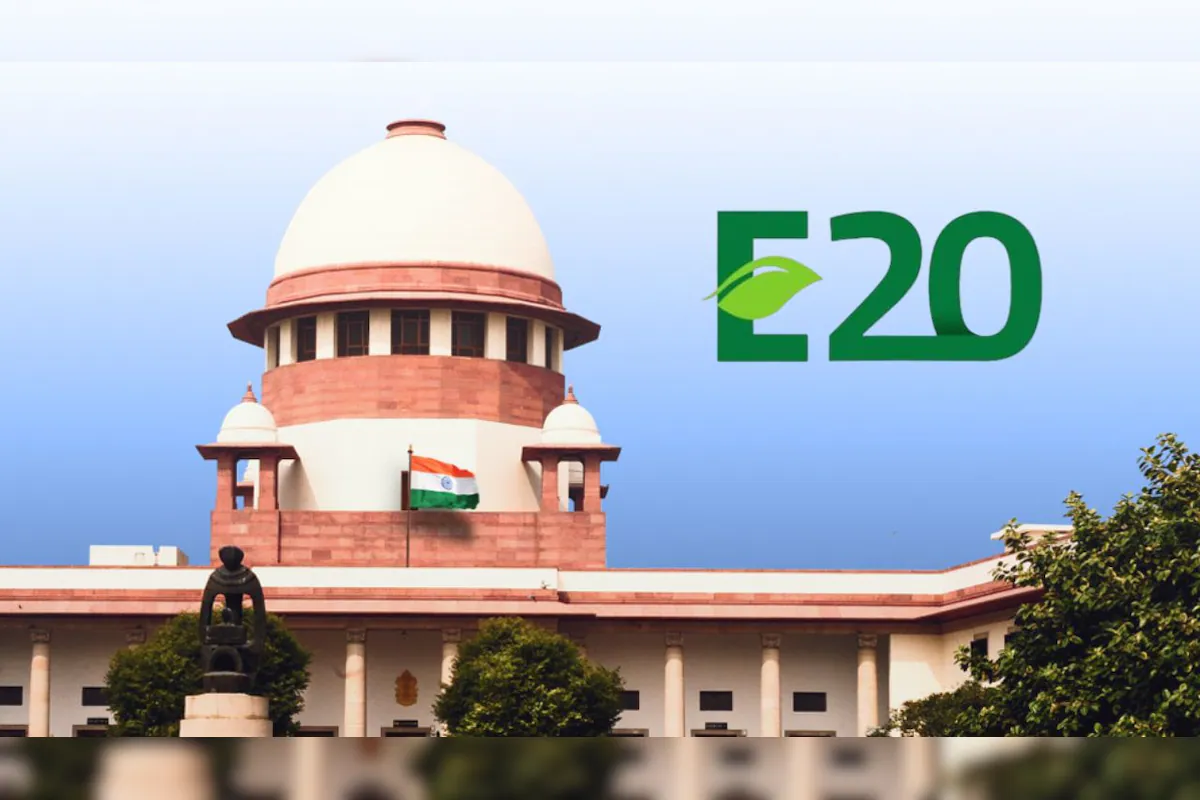In a landmark decision that reinforces India’s clean energy ambitions, the Supreme Court has dismissed a public interest litigation challenging the nationwide rollout of 20 percent ethanol-blended petrol (E20). The petition, filed by advocate Akshay Malhotra, had argued that the government’s mandate forced millions of motorists to use fuel incompatible with their vehicles, violating consumer rights and risking mechanical damage. The apex court’s dismissal effectively clears the path for continued implementation of the Ethanol Blended Petrol Programme, a cornerstone of India’s energy transition strategy.
Key Developments
Supreme Court dismisses PIL challenging mandatory rollout of E20 fuel
-
Petition cited engine damage, insurance denial, and lack of consumer choice
-
Court upholds government’s clean energy policy and ethanol blending roadmap
-
Ministry of Petroleum and Natural Gas reaffirms commitment to EBP Programme
-
Automotive testing agencies report minimal impact on vehicle performance
Background and Petition Claims
Nature of the Challenge
-
The PIL contended that vehicles manufactured before April 2023, including many BS-VI compliant models, were not designed to run on E20 fuel
-
It alleged that consumers were being forced to buy ethanol-blended petrol without clear labeling or informed consent
-
The plea sought directions to ensure availability of ethanol-free petrol (E0) and mandatory labeling of ethanol content at fuel stations
Alleged Consequences
-
Petitioners claimed widespread engine corrosion, reduced mileage, and increased repair costs
-
Insurance companies were reportedly rejecting claims related to ethanol-induced damage
-
The plea also demanded a nationwide study on the mechanical impact of E20 on non-compliant vehicles
Court’s Rationale and Government Stand
The Supreme Court bench, led by Chief Justice B R Gavai, found no constitutional violation in the rollout of E20 fuel
-
The court emphasized the government’s prerogative to implement environmental and energy security policies
-
The Ministry of Petroleum and Natural Gas defended the programme, citing reduced carbon emissions, improved acceleration, and enhanced ride quality
-
Officials noted that ethanol blending has saved over ₹1.44 lakh crore in foreign exchange and paid ₹1.25 lakh crore to farmers since inception
Technical Validation and Industry Response
The Automotive Research Association of India (ARAI) and Society of Indian Automobile Manufacturers (SIAM) conducted tests on vehicles manufactured between 2005 and 2021
-
Results showed only a marginal decline of 2–4 percent in fuel efficiency, refuting claims of severe performance loss
-
Ethanol’s higher octane rating and cooling properties were found to benefit modern engines, especially in urban driving conditions
-
Auto manufacturers have begun calibrating new models for E20 compatibility, aligning with global practices seen in Brazil and the US
Consumer Rights and Transparency
-
While the court dismissed the plea, it acknowledged the need for better consumer awareness
-
The Ministry is expected to issue advisories mandating ethanol content disclosures at fuel pumps
-
Efforts are underway to educate consumers on vehicle compatibility and the benefits of ethanol fuel
Strategic Implications
-
The ruling strengthens India’s push toward energy diversification and reduced crude oil dependence
-
It supports the government’s target of achieving 20 percent ethanol blending by 2025
-
The decision also signals judicial support for climate-aligned policy frameworks, balancing consumer concerns with national priorities
Conclusion
The Supreme Court’s dismissal of the petition against E20 fuel marks a pivotal moment in India’s energy transition. While concerns around vehicle compatibility and consumer choice remain valid, the ruling affirms the government’s right to pursue sustainable fuel alternatives. With technical validation and policy safeguards in place, India’s ethanol blending programme is poised to accelerate, delivering environmental, economic, and agricultural benefits.
Sources: News18, Financial Express, The Hindu, BioEnergy Times
